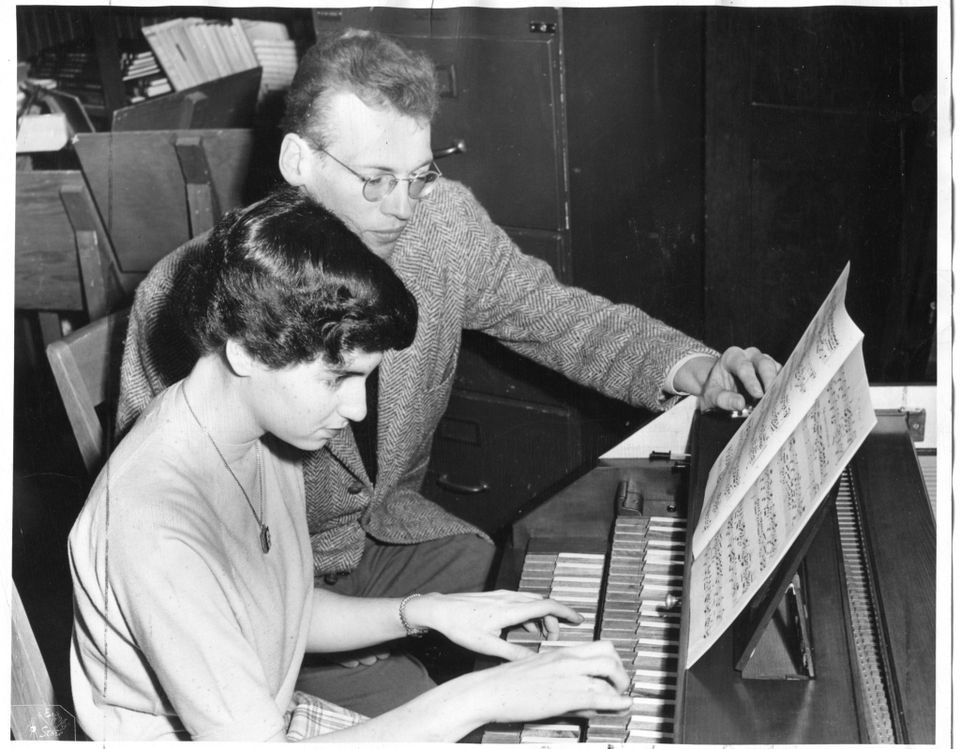The Life and Times of Fay Stender, Radical Attorney for the Black Panthers and Disrupter of White Social Order
By KARL NEMMERSDORF • NOVEMBER 5, 2019 • 72 COMMENTS
Fay Stender
Introduction
Fay Stender earned fame as a radical attorney in the 1960s and 1970s, defending two of the most prominent Black Panthers in highly publicized court cases. During the course of her career in left-wing activism, she embraced numerous "causes" with a passion as flamboyant as it was unbalanced. She worked strictly within the stream of Jewish anti-White activism, but inside that framework her aims were essentially random, a consequence of her peculiar personality. She displayed during the course of her work a toxic combination of Jewish radicalism, selfishness, ambition, egotism, and unrestrained female emotion. The blend eventually destabilized social institutions and got people killed.
Fay was the personification of psychological intensity, a classic marker of Jewish activism. Her personality traits were etched in bold lettering. People "who knew her intimately . . . regarded her as one of the most forceful persons they had ever met."[1] Her sympathetic biographer mentions her "extraordinary" ego, and even her husband was appalled by her "analytic, calculating ambition."[2] She was "deeply typical" of the radical movement, says a fellow 1960s leftist, "the paradigmatic radical—relentlessly pushing at human limits; driven to a fine rage by perceived injustices; searching for personal authenticity in her revolutionary commitments."[3] Like many subversives of the 1960s, she was also a strongly identified Jew, and consciously linked the supposed values of her Jewish heritage with her social activism.
Her life story is a revealing case study in Jewish activism.
Early Life and Education
Fay Stender was born in San Francisco in 1932, into a middle-class Jewish family. Her grandparents hailed from the old country: Brest-Litovsk, Hungary, and Germany. Her father, Sam Abraham, was a chemical engineer; her mother, Ruby, was a teacher. They were a conventional family, not "political" or activist. Sam was Orthodox, but Fay and her only sibling, Lisie, were raised Reform, and they observed the Sabbath and other Jewish rites.[4]
Fay began piano lessons at four years of age, and quickly showed real talent. By the time she entered her teen years she was on track to become a concert pianist. She earned the privilege of performing Beethoven's Emperor Concerto with the San Francisco Symphony when she was just fourteen years old.
Not long afterward, she rebelled against her rigorous schedule. She wasn't happy with her stunted social life (she was attending private school to maximize practice time); she demanded to be allowed to attend Berkeley High School with her friend Hilde Stern. She also wanted to reduce her practice time. Her parents submitted only after much argument. She did not fit in very well in high school, however, because Hilde's circle of friends considered her arrogant. She was "a loner, restless and impatient with frivolity."[5] She read much in her spare time and made the National Honor Society.
Fay and her family evinced a good deal of neurosis. Her mother was "controlling" and "tended toward hypochondria," frequently dragging Fay around to doctors and imposing unnecessary therapies on her. Fay herself suffered periods of serious depression throughout her life, and may have suffered from bipolar disorder.[6] She also enjoyed provoking authority. At public institutions, she would open doors marked "private" and boldly entering, implicitly challenging the White social order.
At seventeen, Fay followed Hilde Stern to Portland, Oregon, to study English at Reed College. Reed had a reputation as left wing and iconoclastic. Fay reveled in her freedom from parental control, and began dating for the first time. She was, like many young people, almost painfully idealistic. A letter of advice to her younger sister featured this earnest impression: "The real meaning of life is in three things, love, beauty and pain. And these three are all really one which is God or Truth. And you will only come to know and understand this by giving, and giving too much."[7]
A young Fay Stender at Reed College
Jewish idealism does not frown upon unorthodox modes of sexual expression. Sex is also, of course, a well-known tool of revolutionaries. In her sophomore year she fell for a youthful professor, Stanley Moore, a womanizing Communist with a taste for bondage (Fay's biographer Lise Pearlman describes the relationship as "sado-masochistic."[8]
Moore turned her strongly to the left and “convinced her to reject her cloistered upbringing and bourgeois Jewish values."[9]
It began to dawn on Fay that "there was something wrong with this country, something I wanted to change."[10] She quickly embraced radical ideas, a rare example of a Gentile converting a Jew to revolution.
In her junior year she transferred to the University of California at Berkeley. There she befriended a fellow student, Chinese immigrant Betty Lee, and, talking "a million miles a minute," "passionately expounded on Communism, racism and imperialism."[11] Her knowledge of these issues must have been superficial, but her passion wasn't. She was vocal enough with her new beliefs that the FBI opened a file on her and Betty as suspected Communists.[12]
The FBI would track Fay through much of her life.
Please go to The Unz Review to read the entire article.
________
Previous The Tribe Strikes Again postings:
EpsteinGate: The Liberal Order Unites to Protect Pedophiles
Dershowitz lobbies for the criminal Israeli looter, Dan Gertler
More related material on the tribe:
A Holocaust of Biblical Proportions
101 Years Ago Today: Jewish, Leftist Criminals Stabbed My Country in the Back

No comments:
Post a Comment
Note: Only a member of this blog may post a comment.